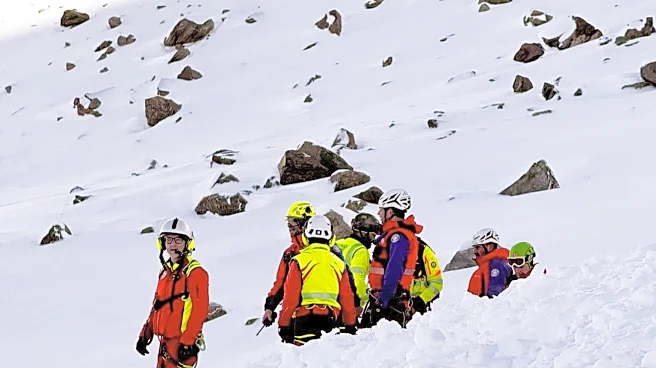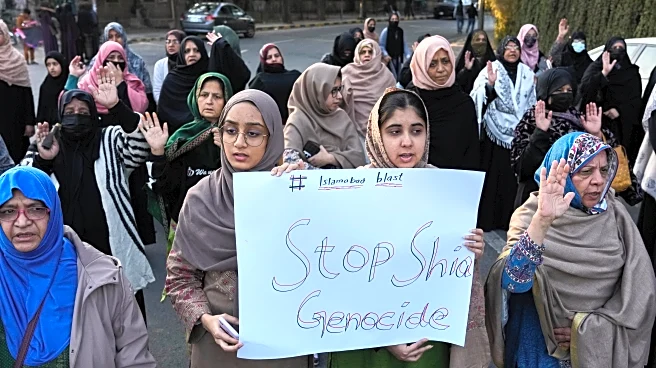Rapid Read • 8 min read
A report by Yemen's National Resistance Forces (NRF) has revealed the methods used by Iran to smuggle arms to the Houthi rebels. The NRF intercepted the dhow Al Sharwa in July, uncovering a 750-ton cargo of arms, ammunition, and missiles. The crew, including Houthi affiliates trained by the Islamic Revolutionary Guard Corps (IRGC), detailed three main smuggling routes. These routes involved commercial shipping from Bandar Abbas, mother ships off Somalia, and front companies in Djibouti. Recent disruptions, including Israeli and U.S. air strikes, have affected these operations, but the IRGC is known for its adaptability.
AD
The disruption of Iranian arms smuggling routes to the Houthis is significant for regional stability and international security. It highlights the ongoing conflict in Yemen and the involvement of external actors like Iran. The interception of arms shipments can weaken the Houthis' military capabilities, potentially altering the balance of power in the region. This development may also impact diplomatic relations, as countries like the UAE and allies work to counter Iranian influence. The situation underscores the complexity of Middle Eastern geopolitics and the challenges in curbing illicit arms trade.
With traditional smuggling routes disrupted, the IRGC may seek new methods to continue supplying the Houthis. This could involve developing alternative routes or adapting existing ones, though this process may be time-consuming. The NRF and allied forces are likely to increase surveillance and interception efforts to prevent further arms shipments. Additionally, diplomatic and military strategies may be employed to address the broader implications of Iranian involvement in Yemen. The international community will be watching closely to see how these developments unfold.
The ethical and legal dimensions of arms smuggling in conflict zones are profound. The involvement of stateless crews and corrupt officials complicates enforcement efforts. The adaptability of the IRGC in circumventing disruptions raises questions about the effectiveness of international sanctions and military interventions. Long-term, this situation may influence global arms control policies and the role of proxy warfare in geopolitical conflicts.
AD
More Stories You Might Enjoy












